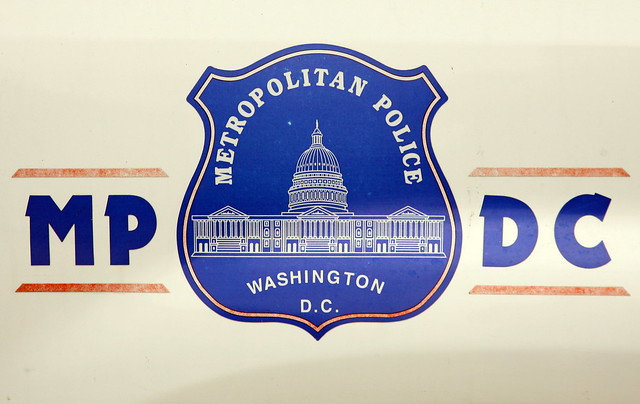Press Releases
|
March 04, 2025

(Washington, DC) – Judicial Watch announced today the Washington, DC, Metropolitan Police Department wants to charge the non-profit over $1,570,500 for local police bodycam footage of the January 6 protests.
Judicial Watch filed June 2024 Freedom of Information Act (FOIA) lawsuit in the U.S. District Court for the District of Columbia after the Metropolitan Police Department denied an August 2021 FOIA request (Judicial Watch v. District of Columbia (No. 2024-CAB-003453)). Judicial Watch is asking for:
All audio/video recordings captured on body-worn cameras from MPD officers during their response to protest activities in and around the Capitol Building on Jan. 6, 2021; and
All body worn camera video captured by Washington, DC, Metropolitan Police Officer Michael Fanone when responding to protests at the Capitol Building on Jan. 6, 2021.
The DC Metro Police initially rejected Judicial Watch’s request because, it claimed, the videos were, at the time, “part of an ongoing investigation and criminal proceeding.”
But since President Trumps pardons of January 6 defendants, the DC government will make public the videos (supposedly containing over one thousand hours of footage) if Judicial Watch agrees to pay over $1.5 million.
“There never has been a legitimate reason to withhold the January 6 police bodycam videos,” said Judicial Watch President Tom Fitton. “If they wanted the videos out for political reasons, they’d be public, but instead the DC government wants more than $1.5 million in order for the public to view its January 6 videos.”
On January 20, President Trump issued pardons and a directive to the attorney general to “pursue dismissal with prejudice to the government of pending indictments against individuals for their conduct related to the events at or near the U.S. Capitol on January 6.”
Judicial Watch has extensively investigated the events of January 6.
A hearing was recently held in the Fani Willis documents scandal regarding her search for records of communications with Special Counsel Jack Smith and the House January 6 Committee. Thanks to this lawsuit Willis finally admitted to having records showing communications with the January 6 Committee but refused to release all but one document in response to the court order that found her in default. She cited a series of legal exemptions to justify the withholding of communications with the January 6 Committee. The only document she did release is one already public letter to January 6 Committee Chairman Benny Thompson (D-MS).
A trial date is currently set for July 20, 2026, in the $30 million wrongful death lawsuit filed by Judicial Watch on behalf of the estate and the family of Ashli Babbitt, who was shot and killed in the U.S. Capitol on January 6, 2021, by then-Capitol Police Lt. Michael Byrd.
In April 2024, Judicial Watch received records from the U.S. Department of Justice (DOJ) in a Freedom of Information Act (FOIA) lawsuit, showing that the FBI opened a criminal investigation of Air Force veteran Ashli Babbitt after her killing and listed four “potential violations of federal law,” including felony rioting and civil disorder.
In January 2024, Judicial Watch filed a Freedom of Information Act (FOIA) lawsuit on behalf of Aaron Babbitt and the Ashli Babbitt Estate against the U.S. Department of Justice for all FBI files on Ashli Babbitt.
In July 2024, Judicial Watch sued the Central Intelligence Agency (CIA) for all records related to any shots fired inside the U.S. Capitol building on January 6, 2021, and records of requests for CIA support including bomb technicians and bomb-detecting dogs placed on standby or used in response to the massive protests in and around Washington, DC.
In September 2023, Judicial Watch received records from the Executive Office for United States Attorneys, a component of the Department of Justice, in a FOIA lawsuit that detailed the extensive apparatus the Biden Justice Department set up to investigate and prosecute January 6 protestors.
A previous review of records from that lawsuit highlighted the prosecution declination memorandum documenting the decision not to prosecute U.S. Capitol Police Lt. Michael Byrd for the shooting death of Babbitt.
In October 2023, Judicial Watch received the court-ordered declaration of James W. Joyce, senior counsel in the Office of the General Counsel for the Capitol Police, in which he describes emails among senior officials of the United States Capitol Police (USCP) in January 2021 that show warnings of possible January 6 protests that could lead to serious disruptions at the U.S. Capitol.
In January 2023, documents from the Department of the Air Force, Joint Base Andrews, MD, showed U.S. Capitol Police Lieutenant Michael Byrd was housed at taxpayer expense at Joint Base Andrews after he shot and killed U.S. Air Force veteran Ashli Babbitt inside the U.S. Capitol on January 6, 2021.
In November 2021, Judicial Watch released multiple audio, visual and photo records from the DC Metropolitan Police Department about the shooting death of Babbitt on January 6, 2021, in the U.S. Capitol Building. The records included a cell phone video of the shooting and an audio of a brief police interview of the shooter, Byrd.
###







![‘We All Owe Him (Elon) a Huge Debt of Gratitude’ [WATCH]](https://www.right2024.com/wp-content/uploads/2025/03/‘We-All-Owe-Him-Elon-a-Huge-Debt-of-Gratitude-350x250.jpg)

![Trump's Admin Guts Another ‘Rogue Government Agency with Zero Accountability’ [WATCH]](https://www.right2024.com/wp-content/uploads/2025/03/Trumps-Admin-Guts-Another-‘Rogue-Government-Agency-with-Zero-Accountability-350x250.jpg)







